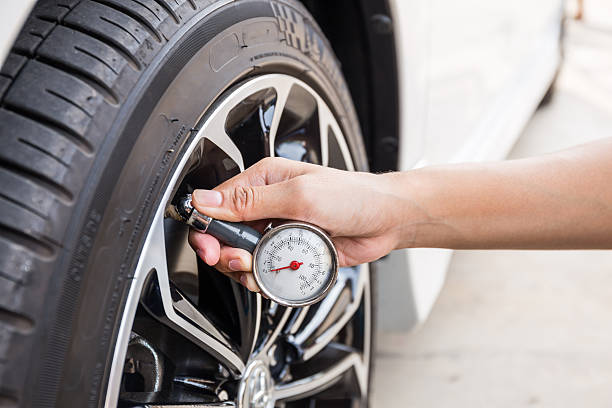Why Tires Matter More Than You Think for Vehicle Safety

When we think about vehicle safety, we often focus on seat belts, airbags, and brakes, but your tires are just as essential. They're the only part of your vehicle that touches the road, which makes them your first line of defense against accidents and poor driving conditions.
In this blog, we'll explore why your tires deserve more attention and how maintaining them can help you stay safe behind the wheel.
1. Tires Directly Affect Your Vehicle's Handling and Braking
Your tires are the only contact point between your car and the road, making them a critical factor in vehicle safety. Worn or underinflated tires can severely impact how your vehicle handles, especially during sudden stops or emergency maneuvers.
Proper tread depth is essential for maintaining traction and ensuring your car can brake quickly and safely. Meanwhile, keeping your tire pressure at the recommended level promotes even grip across all tires, enhancing vehicle stability and control. Don't overlook tire balance either as unbalanced tires can lead to vibrations that affect steering precision and ride comfort.

2. Poor Tire Condition Increases the Risk of Hydroplaning
In Canada, where heavy rain and sudden downpours are common from coast to coast, hydroplaning is a real risk especially during spring and fall. Driving through puddles or wet roads with worn-out tires puts you and others in danger.
Tire tread patterns are engineered to channel water away from the tire's contact patch, helping maintain grip. But when your tread is too shallow (less than 4/32" or 3.2 mm), your tires can ride on top of the water, causing you to hydroplane and increase your chances of accident.
What Happens When You Hydroplane:
-
Steering becomes unresponsive
-
Braking may not work
-
You could lose complete control of the vehicle
Tip: Consider switching to rain-optimized or all-weather tires if you drive frequently in rainy regions like B.C. or Atlantic Canada.
3. Tire Blowouts Can Cause Serious Accidents
Underinflated or damaged tires are prone to blowouts, especially at highway speeds. A sudden tire failure can cause the vehicle to veer off course, putting you and others at risk.
Regularly check for:
-
Bulges or cracks in the sidewall
-
Low tire pressure
-
Uneven or excessive tread wear
4. Seasonal Tires Improve Safety Year-Round
Using all-season tires in winter conditions or winter tires in the summer can reduce traction, braking ability, and overall performance.
Switching to seasonally appropriate tires can improve safety and save lives, especially in extreme Canadian weather.
Pro Tip: In Ontario, using winter tires can also qualify you for an insurance discount.
5. Proper Tire Maintenance Saves You Money and Lives
Maintaining your tires doesn't just improve safety, it also extends the life of your vehicle and improves fuel efficiency. That means:
-
Fewer replacements
-
Better mileage
-
Lower risk of breakdowns or crashes
Quick Tire Safety Checklist:
-
Check pressure monthly
-
Inspect tread depth (minimum 1.6mm; 3mm for winter)
-
Rotate tires every 8,000–10,000 km
-
Balance and align annually
Final Thoughts: Don't Let Tires Be an Afterthought
Your tires are more than rubber on wheels, they're a critical part of your car's safety system. Whether you're prepping for your G driving test or commuting daily, don't overlook tire health.
A simple tire check can prevent serious accidents, boost confidence on the road, and even save lives.
Need a Test-Ready Vehicle with Safe Tires?
At Elan, every vehicle we provide for G2 or G tests is equipped with road-ready, safety-inspected tires—because your peace of mind matters.
🚙Book your vehicle today and drive with confidence.
Pass Your Road Test with Confidence
Book your road test car and instructor package with Elan. Professional vehicles, experienced instructors, and free lesson perks available.
98% pass rate with our instructor packages



